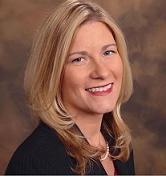Q: How are you currently using benchmarking to improve your center's performance?
 Bruce Kupper, CEO of MEDARVA Healthcare, Stony Point Surgery Center (Richmond, Va.).
Bruce Kupper, CEO of MEDARVA Healthcare, Stony Point Surgery Center (Richmond, Va.).
We participate in a number of external benchmarking projects to determine our clinical and financial performance levels. We use the data to identify areas where we can improve the patient care experience, as well as our financial performance.
Quite frankly, the most valuable benchmark that we have established for ourselves is to achieve a 98 percent patient satisfaction scoring fours and fives on a five point scale. I receive every patient survey, review them, personally research any complaints and then work with the management team to address it properly.
When employees are specifically identified for going above and beyond, we try to recognize them as well. Each month, the employees see the scoring and patient comments. Stony Point Surgery Center employees take pride in achieving high scores and positive comments.
 Jennifer Butterfield, RN, MBA, CNOR, Administrator, Lakes Surgery Center (West Bloomfield, Mich.).
Jennifer Butterfield, RN, MBA, CNOR, Administrator, Lakes Surgery Center (West Bloomfield, Mich.).
Yes, in just about everything we measure ourselves. If you don't have a report card, then you cannot know how you are doing and it's hazardous to just guess. Benchmarking is the only way to make sure you center is performing to the standards necessary to meet the demands required. It's the basis for any improvement or initiative. We benchmark everything: satisfaction, turnover, days in AR, days in inventory, EBITDA, etc.
Our benchmarks drive our goals. If something isn't performing at its benchmark, then its an action plan to improve. Scoring low on any benchmark means that the work isn't getting done in a satisfactory manner. Take hand hygiene as an example. Scoring low in hand hygiene means people aren't washing their hands. That leads to infections, poor patient outcomes, sick employees, etc. Why would you not want to know how you perform in that category? You can't fix it if you aren't looking at it.
 Stephanie Martin, BSN, RN, CNOR, CASC, Administrator, St. Augustine (Fla.) Surgery Center.
Stephanie Martin, BSN, RN, CNOR, CASC, Administrator, St. Augustine (Fla.) Surgery Center.
Our center has benchmarks that we monitor on a daily, weekly and monthly basis. The information provided not only tells us what we can improve, but also what we are doing well. Sharing both sets of information has been great for my staff, as they see results from the changes they implement, but also receive a pat on the back for what they are already doing well.
Lynn Winter, RN, BSN, Administrator, Surgical Center of St. Louis (Bridgeton, Mo).
We benchmark against ourselves against 54 like surgery centers and 202 total surgical centers on a monthly basis. We review the variances and develop performance improvement studies for those areas where we fall out of the benchmark group. We develop a plan of action and then reevaluate as needed to ensure our updated process is achieving the desired outcome.
 Janice Stewart, RN BSN, Nurse Administrator, SurgCenter of Bel Air (Md.).
Janice Stewart, RN BSN, Nurse Administrator, SurgCenter of Bel Air (Md.).
We always compare ourselves to other centers to see where we need to improve and we are always striving to be one of the best for patient care. Comparing turnover times, admissions, infection rates, etc., can help a center to decide if they are not running as the norm does and where their focus should be.
Nate Garner, MHSM, MBA, Administrator, Sunrise Ambulatory Surgical Center (Lakeside, Ariz.).
Our center takes patient satisfaction seriously. We survey each of our patients regarding their experience at our surgical center and review their comments at our meetings. If we notice a trend in patient responses that would indicate a need for improvement, we share this information with our surgeons and incorporate the necessary changes in our practice. For instance, we noticed that some patients felt that their wait times were too long prior to their surgery. We shared this information with our surgeons and resolved that we could reduce the amount of time we ask patients to arrive before surgery. By being willing to accept and respond to feedback our center has maintained very high levels of patient satisfaction.
More Articles on ASC Issues:
Are ASCs Prepared to Win in the Future Healthcare Marketplace? Q&A With Lee Lasris
5 Ways to Make Patient Satisfaction Surveys Work for Surgery Centers
8 Tactics to Strengthen Surgery Center Physician Credentialing

